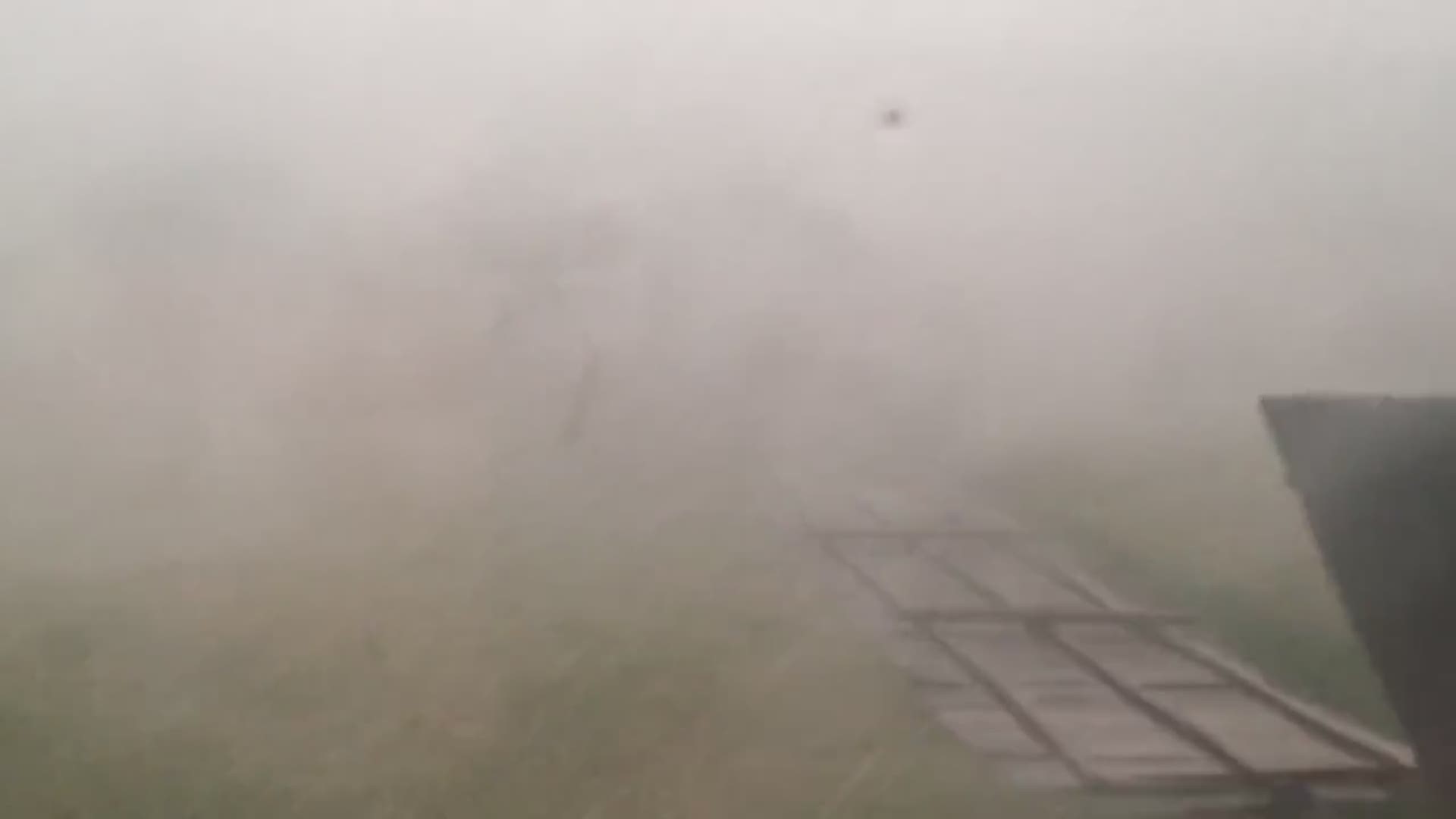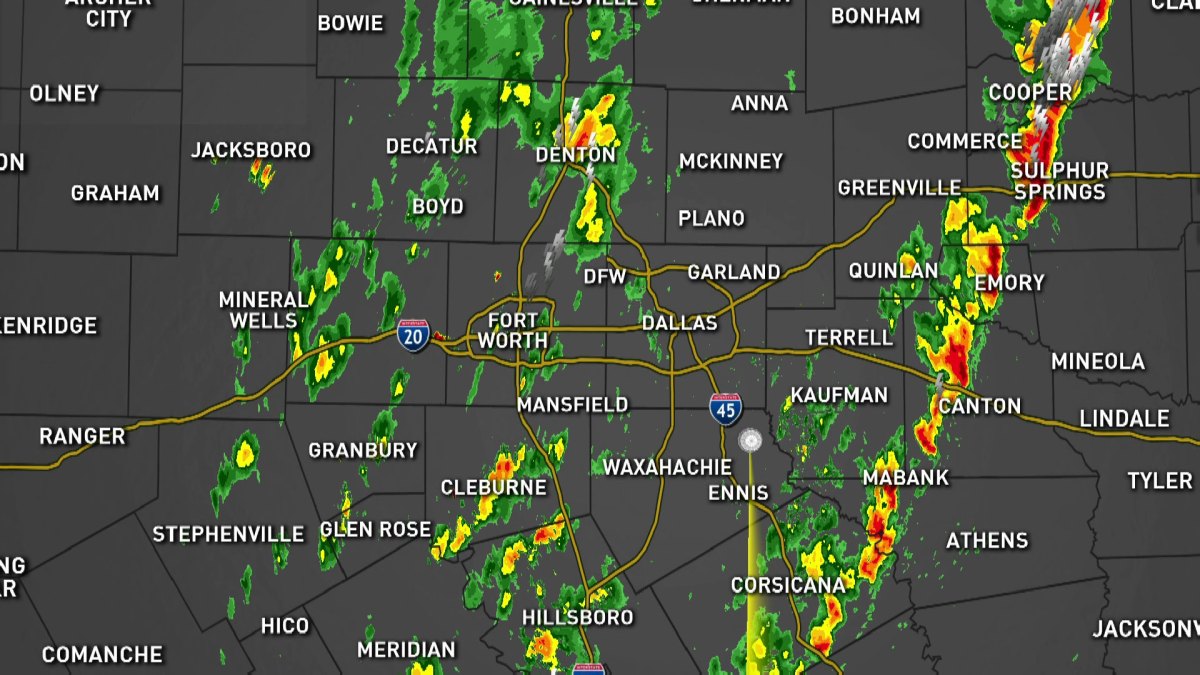The ever-changing climate of Fort Worth, Texas can be both a blessing and a curse. While the city experiences mild winters and warm summers, it is also prone to extreme weather events such as tornadoes, hailstorms, and flash floods. If you’re planning a trip to Fort Worth, be sure to check the forecast before you go and pack accordingly.
Unpredictable Weather Patterns
One of the challenges of living in Fort Worth is the unpredictable weather. The city can experience all four seasons in a single day, so it’s important to be prepared for anything. In the spring, tornadoes and hailstorms are common. In the summer, temperatures can soar into the triple digits. In the fall, flash floods can occur due to heavy rainfall. And in the winter, freezing temperatures and snow are not uncommon.
Extreme Weather Events
Fort Worth is also prone to extreme weather events. Tornadoes are a particular threat, and the city has been hit by several major tornadoes in recent years. In 2013, a tornado tore through the city, causing widespread damage and killing six people. Hailstorms are also common, and can cause damage to cars and homes. Flash floods can also occur, especially during heavy rainfall. In 2015, a flash flood stranded several motorists and caused significant damage to property.

Source: ednaa-quay.blogspot.com
Fort Worth Texas Weather Today
The weather in Fort Worth is constantly changing, so it’s important to check the forecast before you go outside. You can find the latest forecast on the National Weather Service website or on your local news station. If you’re planning a trip to Fort Worth, be sure to pack for all types of weather. You may need to bring a raincoat, umbrella, sunscreen, and sunglasses. And if you’re visiting during the winter, be sure to pack warm clothes.
The History of Fort Worth Texas Weather
The weather in Fort Worth has been recorded for over a century. The earliest weather records date back to the 1840s. These records show that the climate of Fort Worth has changed over time. In the early 1900s, the city was much hotter and drier than it is today. In the 1930s, the city experienced a severe drought. And in the 1950s, the city was hit by a series of tornadoes.

Source: www.interactivehailmaps.com
The Climate of Fort Worth Texas
The climate of Fort Worth is classified as humid subtropical. This means that the city experiences hot, humid summers and mild winters. The average temperature in Fort Worth is 64 degrees Fahrenheit. The average annual rainfall is 36 inches. The city is located in a transition zone between the humid subtropical climate of the Gulf Coast and the semi-arid climate of the Great Plains. This means that the city can experience both humid and dry conditions.
The Storms of Fort Worth Texas
Fort Worth is located in an area that is prone to storms. The city is hit by an average of 20 thunderstorms each year. These thunderstorms can produce heavy rain, hail, and lightning. The city is also hit by an average of 10 tornadoes each year. These tornadoes can be devastating, and they can cause widespread damage and loss of life.

Source: www.pinterest.com
The Floods of Fort Worth Texas
Fort Worth is also located in an area that is prone to flooding. The city is located on the banks of the Trinity River, and flooding is a common occurrence. The worst flood in Fort Worth history occurred in 1908. The floodwaters reached a height of 18 feet, and they caused widespread damage and loss of life. The city has since built a system of levees to protect against flooding, but flooding is still a risk.
The History of Fort Worth Texas Weather Lore
The weather in Fort Worth has been the subject of much lore over the years. One of the most common myths is that the city is located in a “tornado alley.” This myth is not true. Fort Worth is not located in a tornado alley, but the city is still prone to tornadoes. Another common myth is that the weather in Fort Worth is always hot and humid. This myth is also not true. The weather in Fort Worth can be hot and humid, but it can also be cold and dry.

Source: tus-bogus.blogspot.com
The Mysteries of Fort Worth Texas Weather
There are still many mysteries about the weather in Fort Worth. Scientists are still trying to understand why the city is so prone to tornadoes. They are also trying to understand why the weather in Fort Worth can be so unpredictable. The weather in Fort Worth is a complex and fascinating phenomenon, and it is a constant source of wonder and amazement.
The Warnings of Fort Worth Texas Weather
The weather in Fort Worth can be dangerous, so it is important to be aware of the warnings. The National Weather Service issues weather warnings for Fort Worth and the surrounding area. These warnings are based on the latest weather data, and they can help you to stay safe during severe weather. If you hear a weather warning, be sure to take shelter indoors.
Source: www.star-telegram.com
The Watch of Fort Worth Texas Weather
The National Weather Service also issues weather watches for Fort Worth and the surrounding area. A weather watch means that conditions are favorable for the development of severe weather. If you hear a weather watch, be sure to stay tuned to your local news station for the latest information. If a severe weather warning is issued, be sure to take shelter indoors.
Fort Worth Texas Weather Forecast
The National Weather Service provides a detailed weather forecast for Fort Worth and the surrounding area. The forecast includes the expected temperature, humidity, wind speed, and chance of precipitation. You can find the latest forecast on the National Weather Service website or on your local news station. Be sure to check the forecast before you go outside, so that you can be prepared for any weather conditions.
Tips for Staying Safe in Fort Worth Texas Weather
There are a few things you can do to stay safe in Fort Worth weather. First, be sure to check the weather forecast before you go outside. If severe weather is expected, be sure to take shelter indoors. Second, wear appropriate clothing for the weather conditions. In the summer, wear light-colored, loose-fitting clothing. In the winter, wear warm, layered clothing. Third, stay hydrated by drinking plenty of fluids. And finally, be aware of your surroundings and be prepared to seek shelter if the weather conditions change suddenly.

Source: www.pinterest.com
Fort Worth Texas Weather Radar
The National Weather Service also provides a radar image of Fort Worth and the surrounding area. The radar image shows the location of precipitation, and it can help you to track the movement of storms. You can find the latest radar image on the National Weather Service website or on your local news station. Be sure to check the radar image before you go outside, so that you can avoid areas that are experiencing severe weather.
Fun Facts About Fort Worth Texas Weather
Here are some fun facts about the weather in Fort Worth:
- The highest temperature ever recorded in Fort Worth was 113 degrees Fahrenheit.
- The lowest temperature ever recorded in Fort Worth was -6 degrees Fahrenheit.
- The average annual rainfall in Fort Worth is 36 inches.
- The average annual snowfall in Fort Worth is 2 inches.
- Fort Worth is located in a transition zone between the humid subtropical climate of the Gulf Coast and the semi-arid climate of the Great Plains.

Source: mabelf-hedge.blogspot.com
How to Predict Fort Worth Texas Weather
There are a few things you can do to try to predict the weather in Fort Worth. First, look at the weather forecast. The National Weather Service provides a detailed forecast for Fort Worth and the surrounding area. The forecast includes the expected temperature, humidity, wind speed, and chance of precipitation. Second, look at the radar image. The radar image shows the location of precipitation, and it can help you to track the movement of storms. Third, look at the sky. The sky can give you clues about the weather conditions. For example, if the sky is clear, the weather is likely to be fair. If the sky is cloudy, the weather is likely to be cloudy or rainy. Fourth, listen to the wind. The wind can give you clues about the weather conditions. For example, if the wind is blowing from the south, the weather is likely to be warm. If the wind is blowing from the north, the weather is likely to be cold.
What If Fort Worth Texas Weather
What if the weather in Fort Worth was always perfect? What if it was always 72 degrees and sunny? It would be a paradise. People would never have to worry about the weather again. They could always go outside and enjoy the beautiful weather. There would be no need for air conditioning or heating. The economy would boom because people would be able to spend more time outside and spend money on activities. The crime rate would go down because people would be less likely to stay inside and watch TV. The overall quality of life would improve because people would be happier and healthier. Of course, this is just a fantasy. The weather in Fort Worth is not always perfect. But it is still